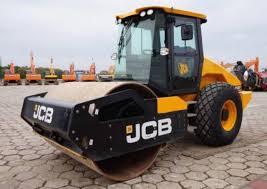Exploring JCB: Innovations and Impact in Construction

Introduction to JCB
JCB, a British multinational corporation, has established itself as a leader in construction equipment since its inception in 1945. Renowned for its yellow and black machinery, JCB has become synonymous with innovative engineering and reliability. With the global construction sector rapidly evolving, JCB’s advancements in technology and sustainability are more crucial than ever for meeting the growing demands of infrastructure development.
Recent Developments at JCB
As of late 2023, JCB has made significant strides in developing eco-friendly machinery that blends performance with sustainability. One notable advancement is their focus on hydrogen-powered vehicles, a testament to the company’s commitment to reducing carbon emissions within the construction industry. In July 2023, JCB unveiled its first hydrogen-powered backhoe loader, marking a major step towards a greener future for construction operations. This innovative machine aims to deliver the same power and efficiency as its diesel counterparts while dramatically lowering emissions.
Furthermore, JCB has been actively expanding its production facilities to meet the rising demand for construction equipment post-pandemic. The company recently announced a £35 million investment in its production capabilities in Staffordshire, anticipated to create over 200 jobs. This expansion aligns with a broader trend in the construction industry, where increased workloads have prompted manufacturers to scale up operations to keep pace.
JCB’s Role in Global Infrastructure Projects
Globally, JCB machinery is integral to numerous large-scale infrastructure projects. Their robust product line, which includes excavators, loaders, and telehandlers, has been instrumental in urban development, road construction, and even emergency disaster relief. For example, JCB equipment has recently been deployed in major redevelopment projects for railway systems in both the UK and abroad, demonstrating the reliability and versatility of their machinery across varied environments.
Conclusion: The Future of JCB
As JCB continues to innovate and adapt to the changes within the construction industry, it is poised to maintain its status as a trailblazer. The push for greener technologies and enhanced productivity will likely define its strategic direction in the coming years. For stakeholders, including contractors, builders, and investors, understanding JCB’s commitments and advancements can offer insights into best practices for sustainable construction and the future of large-scale infrastructure development.









